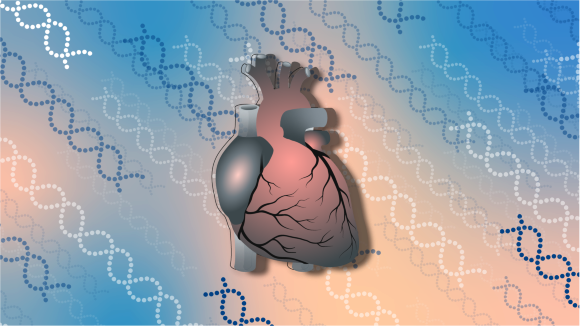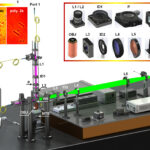Genetics plays a crucial role in the field of cardiology, shedding light on the underlying causes of various heart conditions. Inherited heart conditions, which are passed down through generations, can significantly impact an individual’s cardiovascular health. This article aims to delve into the world of genetics and its connection to cardiology, specifically focusing on common inherited heart conditions and the role of a heart surgeon and managing these conditions in India. In recent years, there has been a growing understanding of how genetics contribute to the development of heart diseases. Cardiologists and geneticists work hand in hand to unravel the complex relationship between genetics and cardiology. By identifying specific genes and their variations, they can gain insights into the mechanisms that give rise to inherited heart conditions.
The dedication and commitment of heart surgeons in Punjab have significantly contributed to the improvement of cardiac healthcare in the region.
Understanding Genetics and Inherited Heart Conditions
Genetics refers to the study of genes and how they are inherited from one generation to another. Genes are responsible for carrying the genetic information that determines our traits and characteristics. When genetic abnormalities occur, they can affect various bodily functions, including the cardiovascular system. Inherited heart conditions, also known as genetic heart diseases, are caused by gene mutations or alterations passed down within families.
Common Inherited Heart Conditions
Hypertrophic Cardiomyopathy:
Hypertrophic cardiomyopathy is a genetic heart condition characterized by the thickening of the heart muscle. It can lead to symptoms such as chest pain, shortness of breath, and an increased risk of sudden cardiac arrest.
Long QT Syndrome:
Long QT syndrome affects the heart’s electrical activity, causing an abnormal prolongation of the QT interval on an electrocardiogram (ECG). This condition can lead to life-threatening arrhythmias and fainting spells.
Familial Hypercholesterolemia:
Familial hypercholesterolemia is an inherited condition that results in high levels of cholesterol in the blood. It increases the risk of cardiovascular diseases, such as heart attacks and strokes, at an early age.
Genetic Testing for Inherited Heart Conditions
Importance of Genetic Testing:
Genetic testing plays a vital role in diagnosing inherited heart conditions and understanding their genetic basis. It helps identify specific gene mutations and provides valuable information for treatment and management strategies.
Types of Genetic Testing:
There are various types of genetic tests available, including targeted gene sequencing, panel testing, and whole exome sequencing. These tests analyze specific genes or a broader range of genetic variations to identify potential abnormalities.
Benefits and Limitations of Genetic Testing:
Genetic testing can provide insights into an individual’s risk of developing an inherited heart condition, guide treatment decisions, and facilitate early interventions. However, it is essential to consider the limitations of genetic testing, such as the possibility of inconclusive results or the identification of gene variants with uncertain clinical significance.
Treatment Options for Inherited Heart Conditions
Medications:
Medications are often prescribed to manage symptoms, reduce the risk of complications, and control underlying conditions associated with inherited heart conditions. These medications may include beta-blockers, calcium channel blockers, and antiarrhythmic drugs, among others.
Lifestyle Changes:
Adopting a heart-healthy lifestyle is crucial for individuals with inherited heart conditions. This includes regular exercise, a balanced diet, smoking cessation, and stress management techniques. Lifestyle changes can help minimize the progression of the condition and improve overall cardiovascular health.
Surgical Interventions:
In some cases, surgical interventions may be necessary to treat or manage inherited heart conditions. Procedures such as septal myectomy, implantable cardioverter-defibrillator (ICD) placement, or heart valve repairs/replacements can be performed by a skilled heart surgeon to alleviate symptoms and improve heart function.
Prevention and Management Strategies
Screening and Early Detection:
Regular cardiac screenings, including ECGs and echocardiograms, are crucial for early detection of inherited heart conditions. Early intervention can significantly improve outcomes and prevent life-threatening complications.
Healthy Lifestyle Habits:
Adopting healthy lifestyle habits, such as maintaining a balanced diet, exercising regularly, managing stress, and avoiding tobacco and excessive alcohol consumption, can reduce the risk of developing heart conditions.
Family Planning and Genetic Counseling:
Individuals with a family history of inherited heart conditions may benefit from genetic counseling. Genetic counselors can provide information about the risks, inheritance patterns, and options for family planning to make informed decisions.
The Role of a Heart Surgeon in Managing Inherited Heart Conditions
Heart surgeons play a pivotal role in the management of inherited heart conditions. Their expertise and skills are instrumental in providing comprehensive care to patients with complex cardiovascular needs.
Cardiac Evaluation and Diagnosis
Heart surgeons collaborate with cardiologists to perform thorough cardiac evaluations, including diagnostic tests and imaging techniques, to accurately diagnose inherited heart conditions. These evaluations help determine the severity of the condition and guide treatment decisions.
Surgical Interventions
Heart surgeons specialize in various surgical interventions to address inherited heart conditions. They perform procedures such as coronary artery bypass grafting (CABG), heart valve repair/replacement, septal myectomy, and implantation of cardiac devices, as necessary. These surgical interventions aim to restore normal heart function and improve the patient’s quality of life.
Postoperative Care and Follow-up
Heart surgeons closely monitor patients during the postoperative period, ensuring optimal recovery and rehabilitation. Regular follow-up visits allow for the evaluation of treatment effectiveness, adjustment of medications if needed, and the identification of any potential complications.
Conclusion
Genetics significantly influences the development and management of inherited heart conditions. Understanding the genetic basis of these conditions provides invaluable insights into their diagnosis, treatment, and prevention. Collaborative efforts between cardiologists and heart surgeons in Punjab, India, offer comprehensive care to individuals with inherited heart conditions, improving outcomes and enhancing quality of life.










